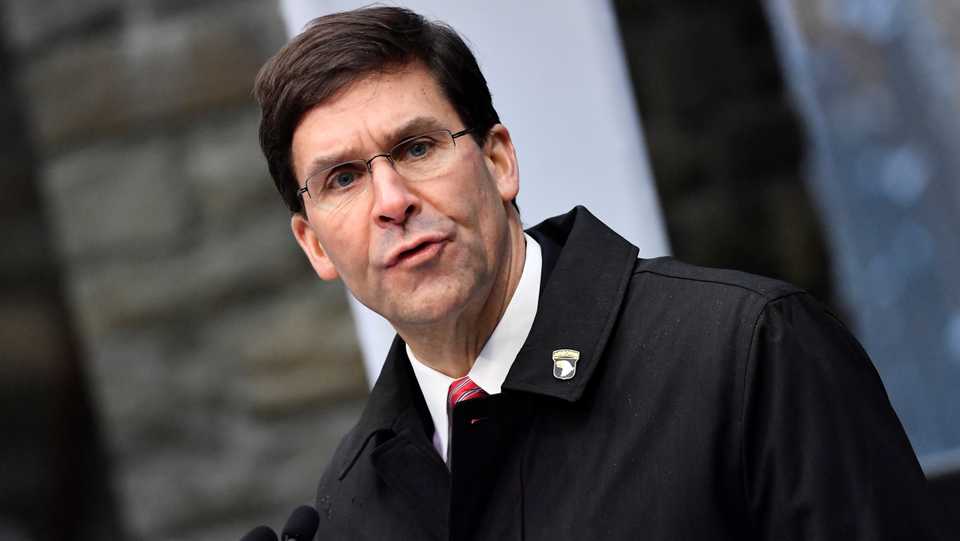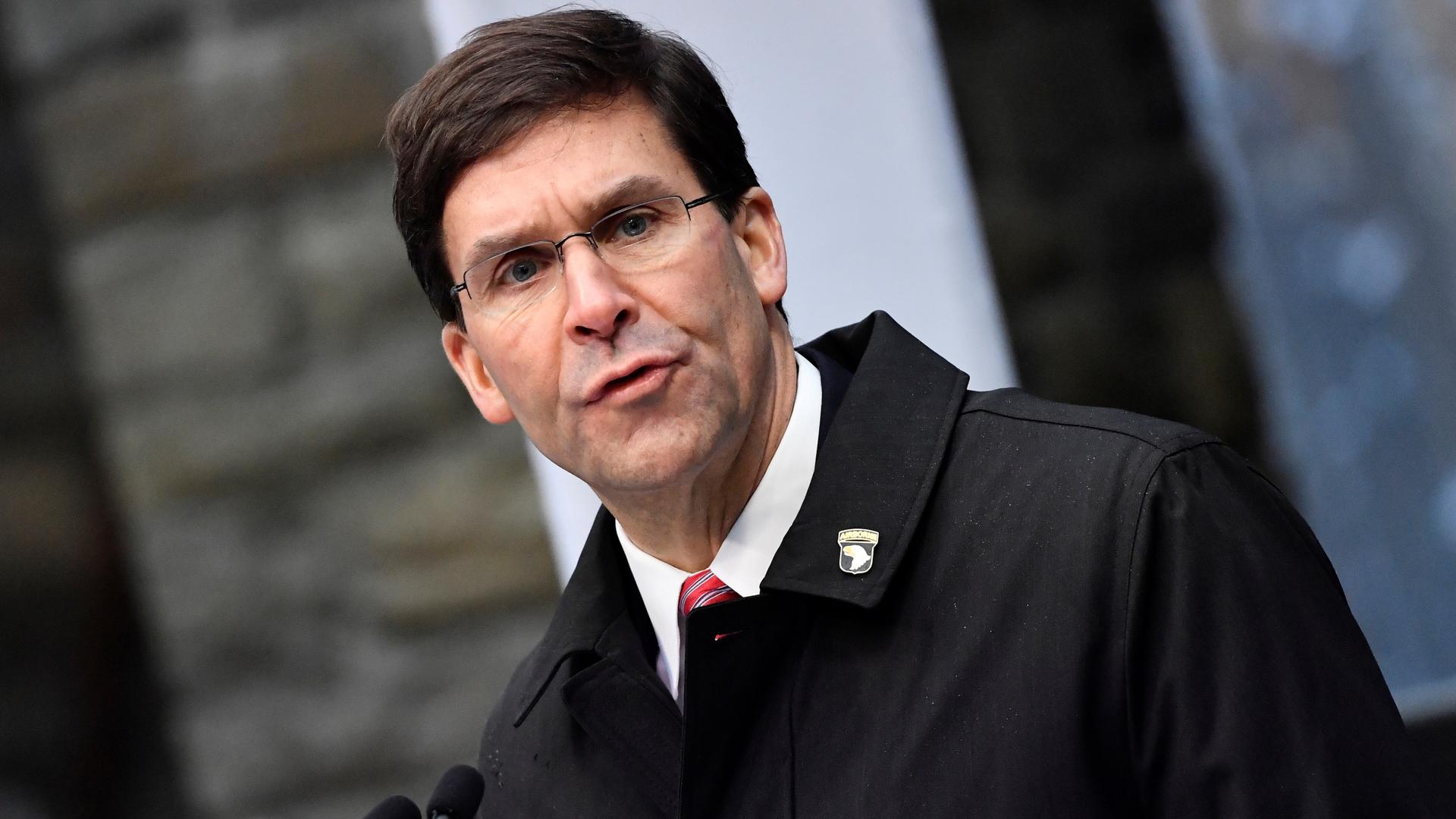
US Defense Secretary Mark Esper said on Monday that he needed to speak with his Turkish counterpart to understand what President Recep Tayyip Erdogan meant when he said he could shut down the Incirlik airbase, which hosts US nuclear warheads.
“When necessary, we will discuss with all our delegations, and if necessary, we may close Incirlik [air base in southern Adana province] and Kurecik [radar station in eastern Malatya province],” President Recep Tayyip Erdogan said in a televised interview on Sunday.
“We regret that the polarisation in US domestic politics has had negative consequences for us and that some groups abuse developments about our country for their own interests in order to weaken [President Donald] Trump,” Erdogan added.
Erdogan’s statement came in face of US threats of sanctions and after a separate US Senate resolution that recognised Armenian claims on the events that transpired in 1915.
“It has not been brought up to me before. The first I heard of it was reading it in the papers as you just mentioned and so I need to talk to my defence counterpart to understand what they really mean and how serious they are,” Esper told reporters in response to a question about the issue.
Esper added that if Turkey was serious about closing down the Kurecik base, it would have to be discussed by NATO.
“They are a sovereign nation to begin with, so they have that inherent right to house or to not house NATO bases or foreign troops,” Esper said.
“But again, I think this becomes an alliance matter, your commitment to the alliance, if indeed they are serious about what they are saying.”
Turkey’s position on 1915 events
Turkey’s position on the events of 1915 is that the deaths of Armenians in eastern Anatolia took place when some sided with invading Russians and revolted against Ottoman forces. A subsequent relocation of Armenians resulted in numerous casualties.
Turkey objects to the presentation of the incidents as “genocide” but describes the events as a tragedy in which both sides suffered casualties.
Ankara has repeatedly proposed the creation of a joint commission of historians from Turkey and Armenia plus international experts to examine the issue.
Russian S-400s
Republican senators have been against Turkey’s purchase of the Russian S-400 missile system, which the US says poses a threat to its F-35 fighter jets and cannot be integrated into NATO defences.
Turkey, however, stresses that the S-400 would not be integrated into NATO systems, and posed no threat to the alliance or its armaments.
They have also moved to sanction Turkey over its launch of Operation Peace Spring in northern Syria against the PKK/YPG terror group on October 9.
The YPG is the Syrian offshoot of the PKK terrorist organisation.
In its 30-year terror campaign against the Turkish state more than 40,000 people, including women and children, have been killed.
Turkey, the US and the EU recognise the PKK as a terrorist organisation.
A US Senate committee backed legislation on Wednesday to impose sanctions on Turkey, pushing President Donald Trump to take a harder line on the issue.
“I think the issue here is once again what is Turkey’s direction with regard to the NATO alliance and the actions they are taking on any number of issues,” Esper said.










Discussion about this post